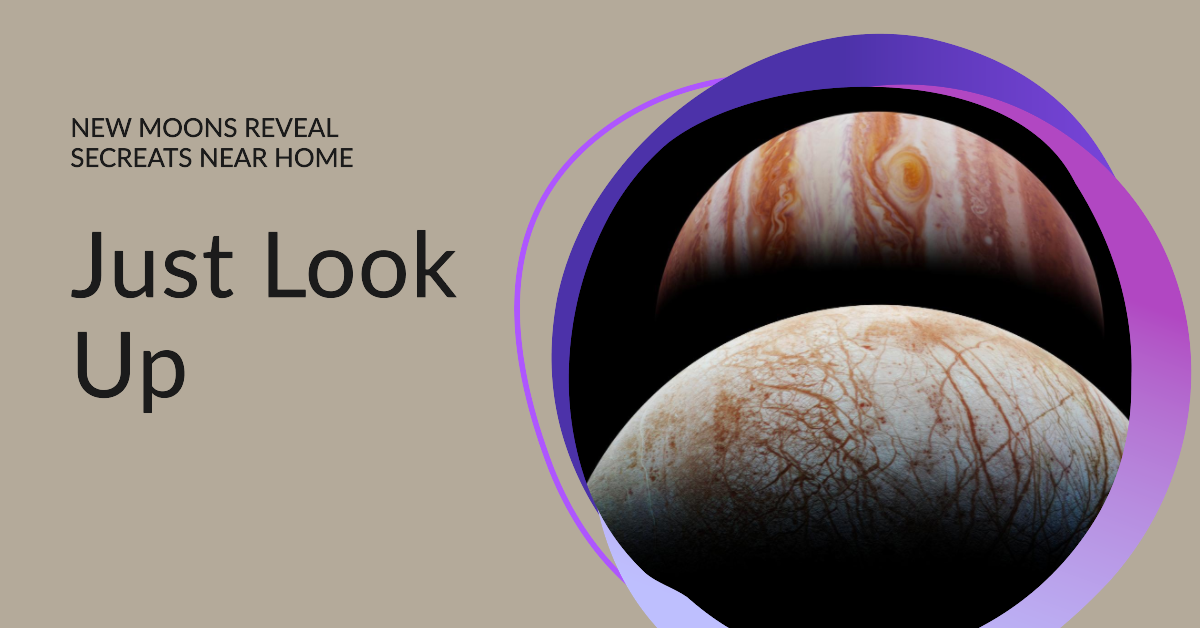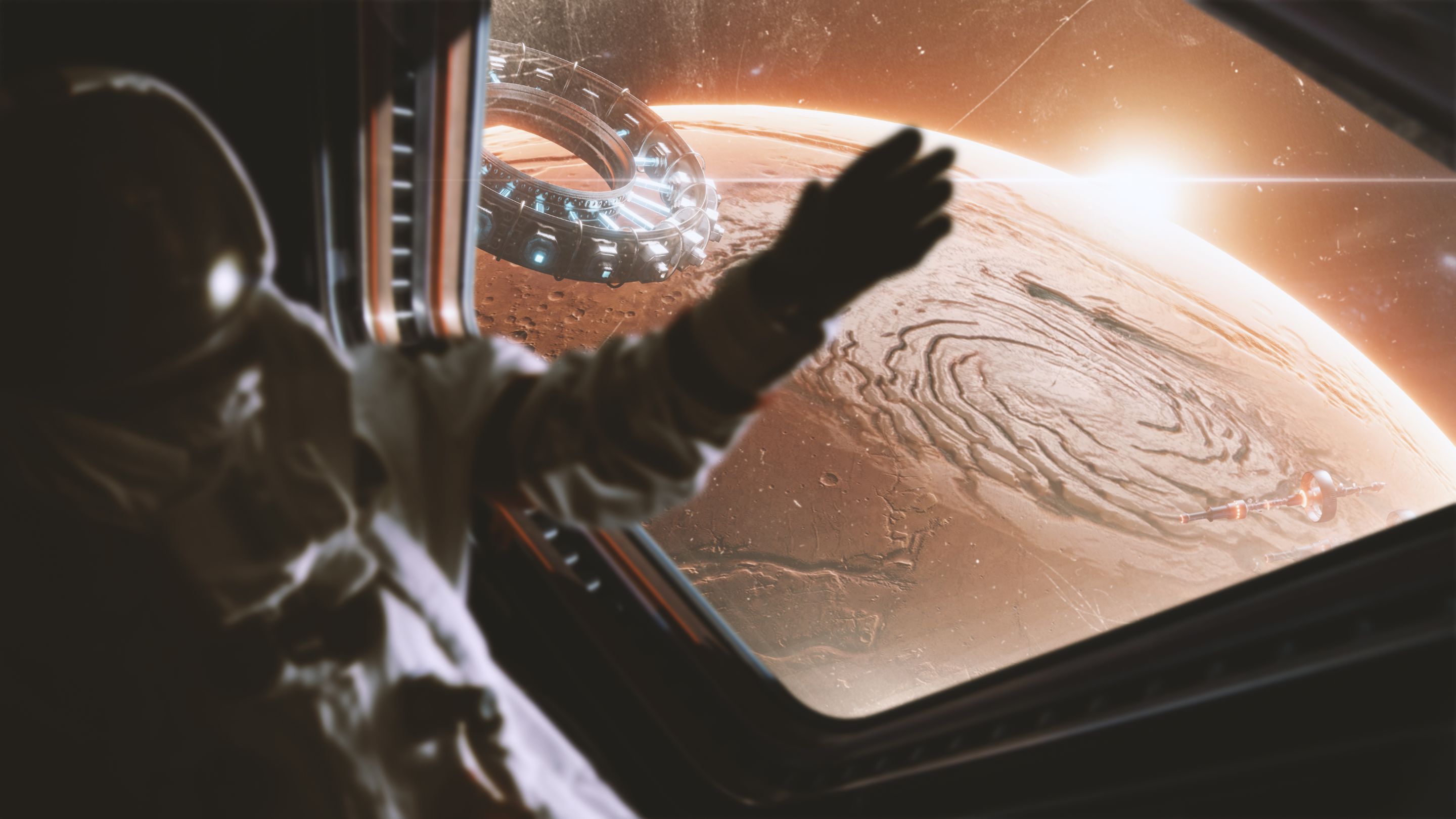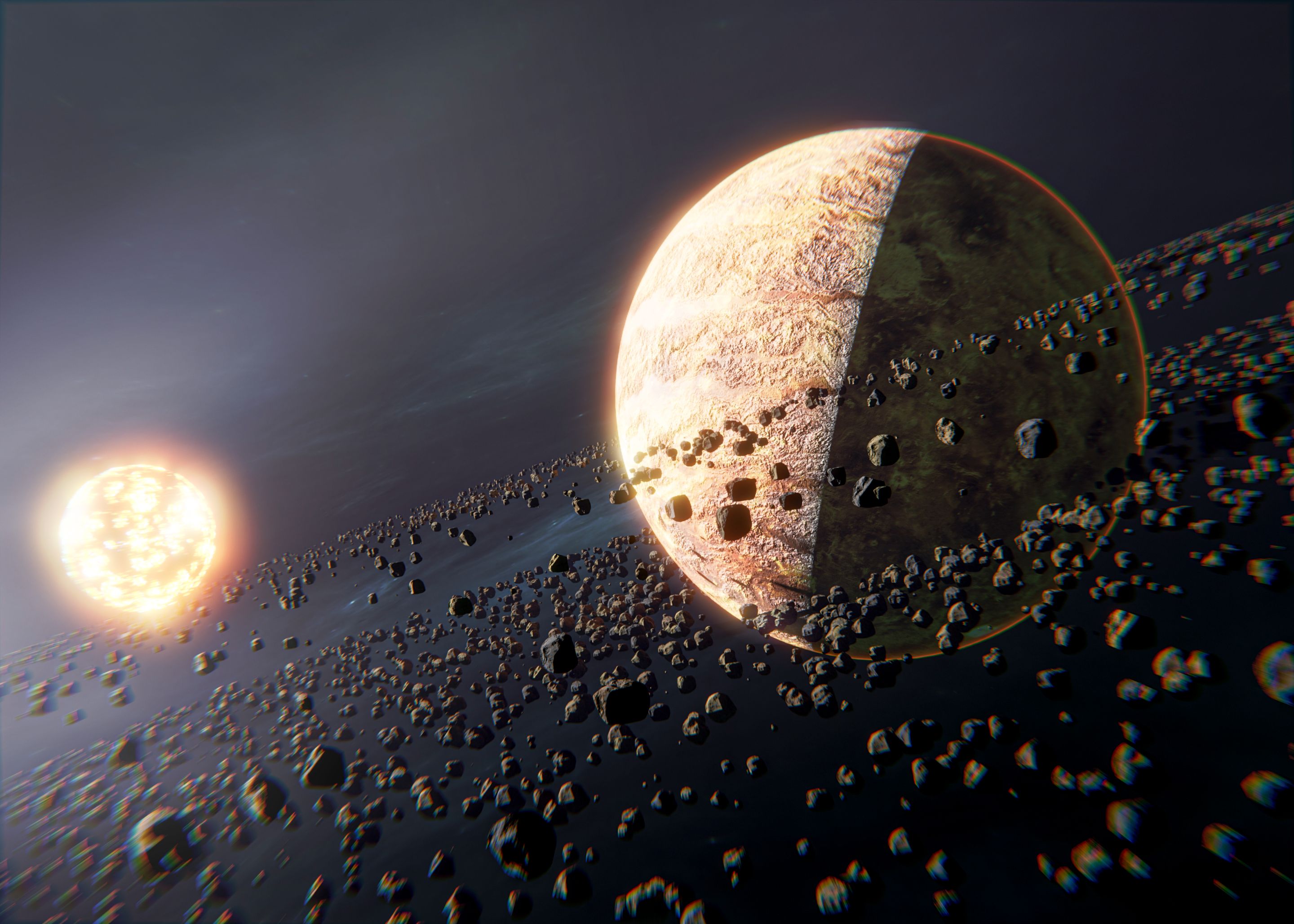
Banner created in canva
Ah, our love to look up and try to find new places. Like the TV show that I used to watch used to say " Space: the final frontier." When I was finishing school, we already had all the 8 planets discovered, well, actually, I still learned a solar system with 9 planets. And one of the messages that I learned from that time is that life was impossible be found in any other planet near us. We have 4 giant gas planets and 3 other rocky planets where for sure, no life form is possible to exist, at least nowadays. So people started to dream about planets outside our solar system, or exoplanets. But a lot has changed since then.
My curiosity brought me again to this topic last year and read that, in addition that exoplanets are being discovered and studied even being far away, we are looking again into our solar system and looking more carefully. Dwarf planets and moons are the new focus for life search. NASA has some ongoing missions to Titan, Enceladus (moons from Saturn) and Europa (moon from Jupiter). The only launched project was the Europa Clipper last year, which will arrive the Jupiter's moon in 2030. The next one to be launched is the Dragonfly space probe to Titan in 2028, while the Enceladus Orbilander is only projected to be launched in 2034. Different places with different characteristics. Europa and Enceladus have a thick layer of ice on top of a liquid water ocean, while Titan has a liquid ocean of methane.
So now we don't care where we are going to find life, it can be a planet or something else. In addition to that the novelties about our solar system don't stop. Recently we found another moon in Uranus. Not long ago, we also identified 128 new moons on Saturn. So More places where we can try to look for life. Not only life that are we looking, but if humanity is thinking of expanding its horizons, we could establish colonies in further places, so space travel towards the end of the solar system could be possible with these bases. Imagine a colony on Pluto? Maybe we can think about visiting an exoplanet from there?
I am excited that, probably in the next couple of years, we will end the mystery about a new planet. The hypothesis of planet IX still bugs me a lot. How can something still be there, but we didn't find it? Many mysteries around the Kuiper belt, the home of Pluto and where we have so many objects that can also bring us intriguing news in the future.
I don't have any study in astrophysics, I am a lay on that topic. But still something that triggers me a lot. The new discoveries that occur once in a while just make me greedy about what is coming next.What you guys think about all of that?
[](https://vote.hive.uno/@gwajnberg) Banner created in canva Ah, nossa paixão por olhar para cima e tentar encontrar novos lugares. Como o programa de TV que eu costumava assistir dizia "Espaço: a fronteira final". Quando eu estava terminando a escola, já tínhamos descoberto todos os 8 planetas. Bem, na verdade, eu ainda aprendi sobre um sistema solar com 9 planetas. E uma das mensagens que aprendi daquela época é que era impossível encontrar vida em qualquer outro planeta próximo de nós. Temos 4 planetas gasosos gigantes e 3 outros planetas rochosos onde, com certeza, nenhuma forma de vida é possível de existir, pelo menos hoje em dia. Então, as pessoas começaram a sonhar com planetas fora do nosso sistema solar, ou exoplanetas. Mas muita coisa mudou desde então.
Minha curiosidade me trouxe de volta a este tópico no ano passado e li que, além de exoplanetas estarem sendo descobertos e estudados mesmo distantes, estamos observando novamente o nosso sistema solar e com mais cuidado. Planetas anões e luas são o novo foco da busca por vida. A NASA tem algumas missões em andamento para Titã, Encélado (luas de Saturno) e Europa (lua de Júpiter). O único projeto lançado foi o Europa Clipper no ano passado, que chegará à lua de Júpiter em 2030. A próxima a ser lançada é a sonda espacial Dragonfly para Titã em 2028, enquanto a Encélado Orbilander está prevista para ser lançada apenas em 2034. Lugares diferentes com características diferentes. Europa e Encélado têm uma espessa camada de gelo sobre um oceano de água líquida, enquanto Titã tem um oceano líquido de metano.
Portanto, agora não importa onde vamos encontrar vida, pode ser um planeta ou outra coisa. Além disso, as novidades sobre o nosso sistema solar não param. Recentemente, encontramos outra lua em Urano. Há pouco tempo, também identificamos 128 novas luas em Saturno. Portanto, há mais lugares onde podemos tentar procurar vida. Não apenas a vida que estamos procurando, mas se a humanidade estiver pensando em expandir seus horizontes, poderíamos estabelecer colônias em lugares mais distantes, de modo que viagens espaciais em direção ao fim do sistema solar seriam possíveis com essas bases. Imagine uma colônia em Plutão? Talvez possamos pensar em visitar um exoplaneta de lá?
Estou animado que, provavelmente nos próximos anos, acabaremos com o mistério sobre um novo planeta. A hipótese do planeta IX ainda me incomoda muito. Como algo ainda pode estar lá, mas não o encontramos? Muitos mistérios em torno do cinturão de Kuiper, o lar de Plutão e onde temos tantos objetos que também podem nos trazer notícias intrigantes no futuro.
Não tenho nenhum estudo em astrofísica, sou leigo no assunto. Mas ainda assim é algo que mexe muito comigo. As novas descobertas que acontecem de vez em quando me deixam ansioso para saber o que vem a seguir. O que vocês acham de tudo isso?
[](https://vote.hive.uno/@gwajnberg) Banner criado no Canva


